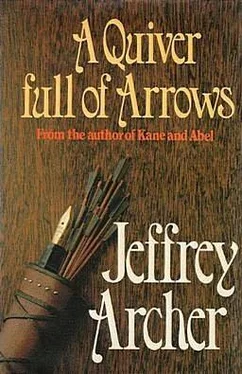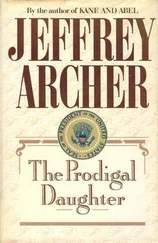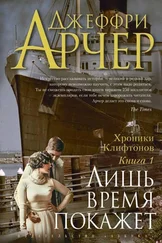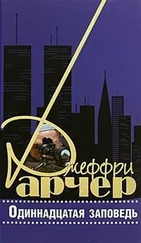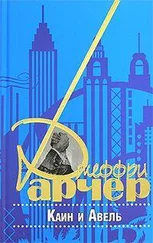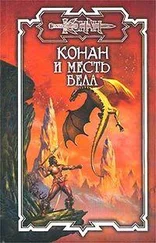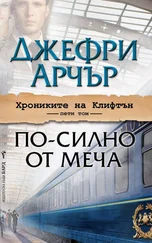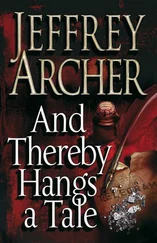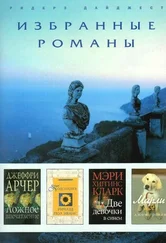“You think the statue is good?” asked the craftsman through the interpreter.
“It’s magnificent,” the minister replied. “Quite magnificent.”
“My own work is not worthy to stand by its side,” the craftsman added humbly.
“No, no,” said the minister, though in truth the little craftsman knew that the great man was only being kind, for Sir Alexander was holding the ivory statue in a way that already showed the same love as the old man had for the piece.
The minister smiled down at the craftsman as he handed back the Emperor Kung and then he uttered perhaps the only undiplomatic words he had ever spoken in thirty-five years of serving his Queen and country.
“How I wish the piece was mine.”
Sir Alexander regretted voicing his thoughts immediately he heard the mandarin translate them, because he knew only too well the old Chinese tradition that if an honored guest requests something, the giver will grow in the eyes of his fellow men by parting with it.
A sad look came over the face of the little old craftsman as he handed the figurine back to the minister.
“No, no. I was only joking,” said Sir Alexander, quickly trying to return the piece to its owner.
“You would dishonor my humble home if you did not take the Emperor, Your Excellency,” the old man said anxiously and the mandarin gravely nodded his agreement.
The minister remained silent for some time. “I have dishonored my own home, sir,” he replied, and looked toward the mandarin, who remained inscrutable.
The little craftsman bowed. “I must fix a base on the statue,” he said, “or you will not be able to put the piece on view.”
He went to a corner of the room and opened a wooden packing chest that must have housed a hundred bases for his own statues. Rummaging around, he picked out a base decorated with small dark figures that the minister did not care for but that nevertheless made a perfect fit; the old man assured Sir Alexander that although he did not know the base’s history, the piece bore the mark of a good craftsman.
The embarrassed minister took the gift and tried hopelessly to thank the little old man. The craftsman once again bowed low as Sir Alexander and the expressionless mandarin left the little workshop.
As the party traveled back to Peking, the mandarin observed the terrible state the minister was in, and uncharacteristically spoke first:
“Your Excellency is no doubt aware,” he said, “of the old Chinese custom that when a stranger has been generous, you must return the kindness within the calendar year.”
Sir Alexander smiled his thanks and thought carefully about the mandarin’s words. Once back in his official residence, he went immediately to the Embassy’s extensive library to see if he could discover a realistic value for the little masterpiece. After much diligent research, he came across a drawing of a Ming statue that was almost an exact copy of the one now in his possession and with the help of the mandarin he was able to assess its true worth, a figure that came to almost three years’ emolument for a servant of the Crown. The minister discussed the problem with Lady Heathcote and she left her husband in no doubt as to the course of action he must take.
The following week the minister dispatched a letter by private messenger to his bankers, Coutts & Company, in the Strand, London, requesting that they send a large part of his savings to reach him in Peking as quickly as possible. When the funds arrived nine weeks later, the minister again approached the mandarin, who listened to his questions and, seven days later, gave him the details he had asked for.
The mandarin had discovered that the little craftsman, Yung Lee, came from the old and trusted family of Yung Shau, who had for some five hundred years been craftsmen. Sir Alexander also learned that many of Yung Lee’s ancestors had examples of their work in the palaces of the Manchu princes. Yung Lee himself was growing old and wished to retire to the hills above the village, where his ancestors had always died. His son was ready to take over the workshop from him and continue the family tradition. The minister thanked the mandarin for his diligence and had only one more request of him. The mandarin listened sympathetically to the Ambassador from England and returned to the palace to seek advice.
A few days later the Empress granted Sir Alexander’s request.
Almost a year to the day, the minister, accompanied by the mandarin, set out again from Peking for the village of Ha Li Chuan. When Sir Alexander arrived he immediately dismounted from his horse and entered the workshop that he remembered so well. The old man was seated at his bench, his flat hat slightly askew, a piece of uncarved ivory held lovingly between his fingers. He looked up from his work and shuffled toward the minister, not recognizing his guest until he could almost touch the foreign giant. Then he bowed low. The minister spoke through the mandarin:
“I have returned, sir, within the calendar year to repay my debt.”
“There was no need, Your Excellency. My family is honored that the little statue lives in a great Embassy and may one day be admired by the people of your own land.”
The minister could think of no words to form an adequate reply, and simply requested that the old man should accompany him on a short journey.
The craftsman agreed without question and the three men set out on donkeys toward the north. They traveled for over two hours up a thin winding path into the hills behind the craftsman’s workshop, and when they reached the village of Ma Tien they were met by another mandarin, who bowed low to the minister and requested that Sir Alexander and the craftsman continue their journey with him on foot. They walked in silence to the far side of the village and stopped only when they had reached a hollow in the hill from which there was a magnificent view of the valley all the way down to Ha Li Chuan. In the hollow stood a newly completed small white house of the most perfect proportions. Two stone liondogs, tongues hanging over their lips, guarded the front entrance. The little old craftsman, who had not spoken since he had left his workshop, remained mystified by the purpose of the journey until the minister turned to him and offered:
“A small, inadequate gift and my feeble attempt to repay you in kind.”
The craftsman fell to his knees and begged forgiveness of the mandarin as he knew it was forbidden for an artisan to accept gifts from a foreigner. The mandarin raised the frightened blue figure from the ground, explaining to his countryman that the Empress herself had sanctioned the minister’s request. A smile of joy came over the face of the craftsman and he slowly walked up to the doorway of the beautiful little house, unable to resist running his hand over the carved lion-dogs. The three travelers then spent more than an hour admiring the little house before returning in silent mutual happiness back to the workshop in Ha Li Chuan. The craftsman and the minister parted, honor satisfied, and Sir Alexander rode to his Embassy that night content that his actions had met with the approval of the mandarin as well as Lady Heathcote.
The minister completed his tour of duty in Peking, and the Empress awarded him the Silver Star of China and a grateful Queen added the K.C.V.O. to his already long list of decorations. After a few weeks back at the Foreign Office clearing the China desk, Sir Alexander retired to his native Yorkshire, the only English county whose inhabitants still hope to be born and die in the same place — not unlike the Chinese. Sir Alexander spent his final years in the home of his late father with his wife and the little Ming Emperor. The statue occupied the center of the mantelpiece in the drawing room for all to see and admire.
Читать дальше
